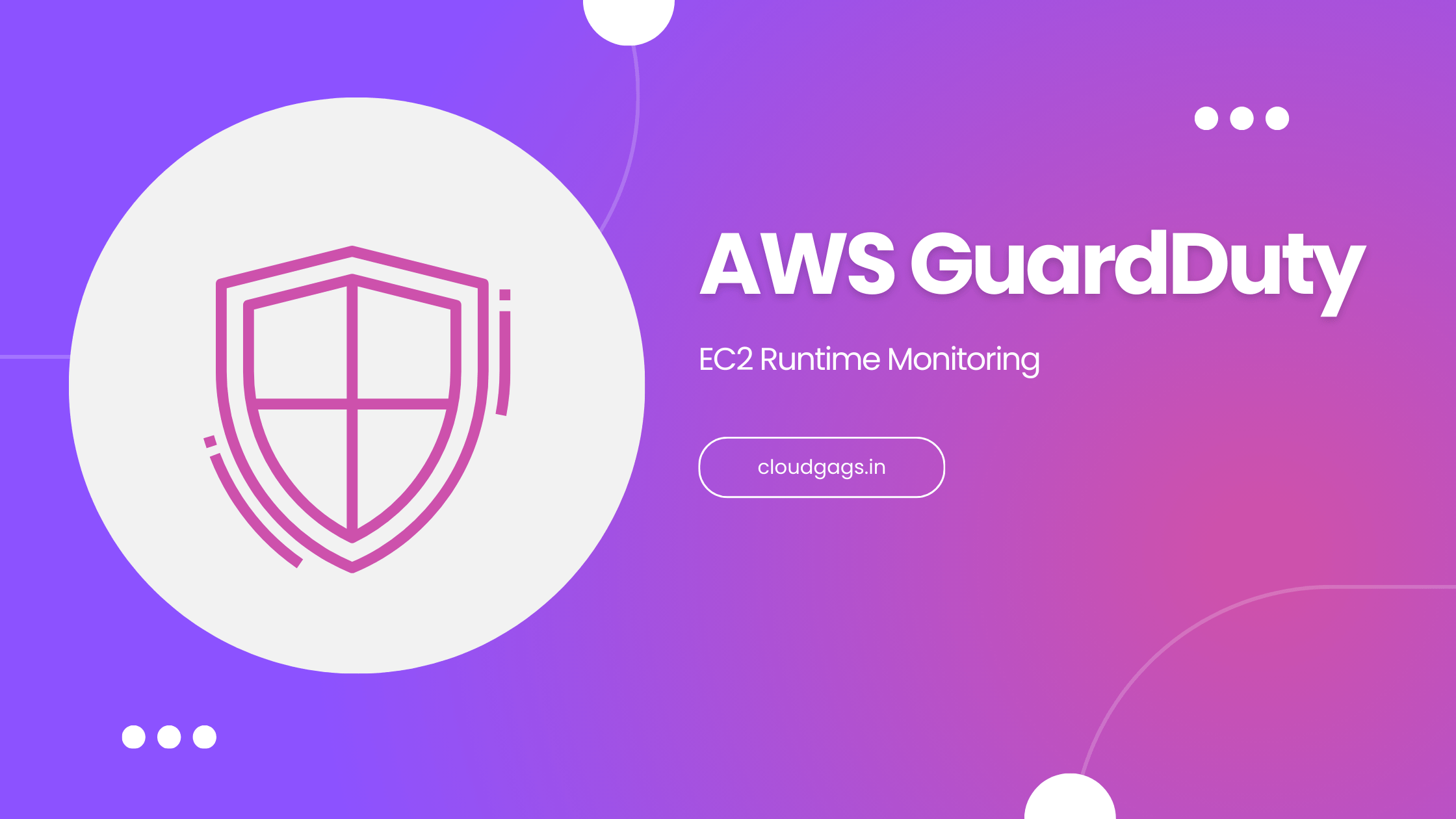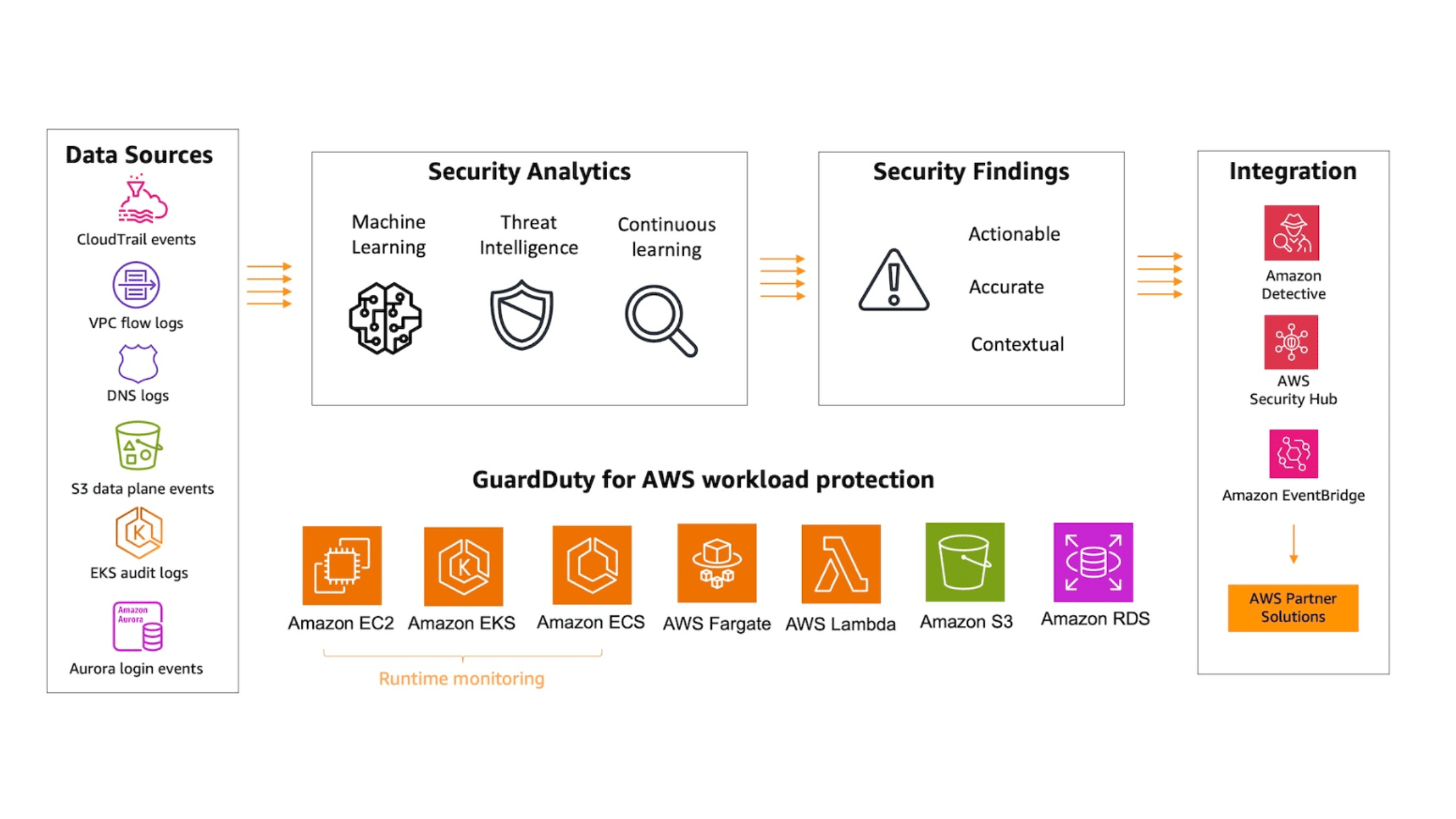Amazon GuardDuty EC2 Runtime Monitoring is Now Available
 CloudGags
CloudGags
Amazon Web Services (AWS) has recently announced the general availability of Amazon GuardDuty EC2 Runtime Monitoring. This new feature enhances the security of EC2 instances by monitoring their runtime activities.
GuardDuty is AWS’s intelligent threat detection service, and with the addition of EC2 Runtime Monitoring, it offers even more comprehensive protection for your cloud resources.
What is Amazon GuardDuty?
Amazon GuardDuty is a security service that uses machine learning to detect potential threats and malicious activities within your AWS environment.
It continuously monitors your AWS accounts and workloads, providing detailed security findings that help you identify and respond to threats quickly.

Key Features of GuardDuty
Intelligent Threat Detection: Uses machine learning to detect threats.
Continuous Monitoring: Keeps an eye on your AWS accounts and workloads 24/7.Detailed Security Findings: Provides in-depth information about detected threats.
Integration with Other AWS Services: Works with AWS Security Hub, Amazon Detective, and more
What is EC2 Runtime Monitoring?
EC2 Runtime Monitoring is a new feature within GuardDuty that focuses on monitoring the operating system-level activities of EC2 instances.
This includes observing network and file events to detect potential runtime threats, such as malware execution and unauthorized network connections.
Benefits of EC2 Runtime Monitoring
Enhanced Threat Detection: Identifies threats at the operating system level.
Visibility into OS-Level Activities: Offers insights into the activities occurring within your EC2 instances.Integration with AWS Ecosystem: Seamlessly integrates with other AWS security services for a unified security strategy.
How Does It Work?
GuardDuty EC2 Runtime Monitoring works by deploying a security agent on your EC2 instances. This agent collects data on runtime activities and sends it to GuardDuty for analysis.
If any suspicious activity is detected, GuardDuty generates a security finding, providing you with the details you need to investigate and respond to the threat.
Setting Up EC2 Runtime Monitoring
Enable GuardDuty: Make sure GuardDuty is enabled in your AWS account.
Deploy the Security Agent: You can deploy the agent automatically or manually.
Monitor Security Findings: Use the GuardDuty console to view and manage security findings related to your EC2 instances.
Why is EC2 Runtime Monitoring Important?
In today’s cloud-centric world, protecting your virtual machines from threats is crucial.
EC2 Runtime Monitoring helps ensure that your EC2 instances are secure by providing continuous, detailed monitoring of their activities.
This level of visibility is essential for detecting and mitigating threats before they can cause significant damage.
Common Threats Detected
Malware Execution: Identifies and alerts you to the presence of malware.
Unauthorized Network Connections: Detects suspicious network activities.
Cryptocurrency Mining: Recognizes instances that are involved in unauthorized cryptocurrency mining activities.
Real-World Applications
EC2 Runtime Monitoring is beneficial for a wide range of industries and use cases. Whether you are running a small business or managing a large enterprise, this feature can help you maintain the security of your cloud infrastructure.
Use Cases
E-Commerce: Protect customer data and ensure the security of online transactions.
Healthcare: Safeguard sensitive patient information and comply with regulatory requirements.
Financial Services: Prevent unauthorized access to financial data and transactions.
Conclusion
Amazon GuardDuty EC2 Runtime Monitoring is a powerful tool for enhancing the security of your EC2 instances.
By providing detailed insights into OS-level activities and integrating seamlessly with other AWS security services, it helps you detect and respond to threats more effectively.
Whether you’re new to AWS or a seasoned user, enabling EC2 Runtime Monitoring can significantly improve your cloud security posture.
For more information and to get started, visit the AWS Blog.
Subscribe to my newsletter
Read articles from CloudGags directly inside your inbox. Subscribe to the newsletter, and don't miss out.
Written by
